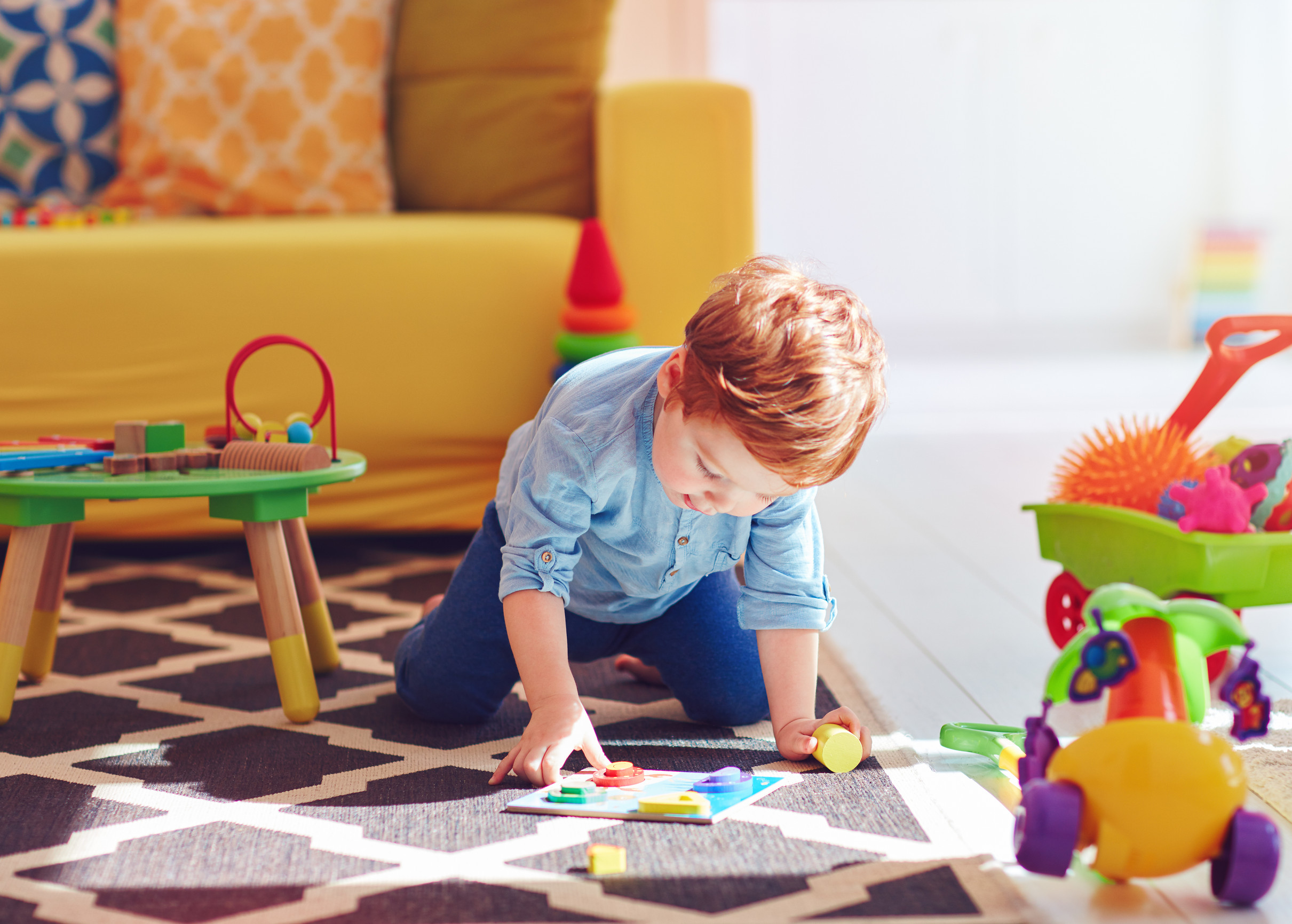If you’ve ever tried to sneak off to the bathroom only to find tiny fingers wiggling under the door, you’re not alone. The dream of peeing in peace feels like a far-off fantasy for many parents of young kids. But here’s the good news—when you encourage independent play, you’re not only giving yourself a breather, you’re also helping your child build essential skills like creativity, problem-solving, and self-confidence. Independent play isn’t just a break for you, it’s a gift for them. These nine tried-and-true strategies can help you reclaim five quiet minutes (or maybe even ten) without guilt or a clingy sidekick.
1. Start with Short, Realistic Goals
Expecting your child to entertain themselves for an hour out of the gate isn’t realistic. Start small by giving them five to ten minutes of solo play, then gradually increase the time. Setting a timer can help them know what to expect and give them a set break. Keep your expectations low at first so you can build confidence. Learning how to play alone is a skill, and like any skill, it takes time and practice.
2. Create a Safe and Inviting Play Space
A child is more likely to engage in solo play if their environment feels secure and interesting. Designate a play area that’s safe for exploration without constant supervision, and stock it with age-appropriate toys that don’t need adult help. Keep it clutter-free so they’re not overwhelmed with too many choices. A cozy rug, a few baskets, and some well-loved toys go a long way. When kids feel ownership over their space, they’re more likely to stay engaged.
3. Rotate Toys to Keep Things Fresh
One of the easiest ways to encourage independent play is by rotating toys regularly. Too many options can be overwhelming, but reintroducing forgotten favorites can spark curiosity all over again. Store some toys out of sight and swap them every few weeks. It keeps their interest high without the need for new purchases. This simple trick can breathe new life into even the most ignored playthings.
4. Use Open-Ended Toys
Toys that do all the talking (literally) don’t leave much room for imagination. Open-ended toys like blocks, dolls, magnetic tiles, or pretend food encourage kids to build, create, and narrate their own stories. These types of toys are gold when you want to encourage independent play that lasts longer than two minutes. The less the toy does, the more your child’s brain has to do. And that’s exactly the kind of deep play you’re hoping for.
5. Encourage “Boredom”
It may feel counterintuitive, but boredom is often the gateway to independent play. When you resist the urge to offer entertainment immediately, kids have the opportunity to create their own fun. Give them time and space to figure it out—even if they whine a little at first. You’re teaching them that it’s okay to be bored, and even better, that they can solve that boredom on their own. That’s a lifelong skill worth developing early.
6. Play With Them First, Then Step Back
Some kids need a little warm-up before diving into solo play. Spend five to ten minutes playing with them to help them settle into a story or activity. Then, quietly excuse yourself while they’re still engaged. Say something like, “I love what you’re building—keep working while I grab a snack.” This approach creates a gentle transition and makes the idea of playing alone feel less abrupt. It’s a simple but effective way to encourage independent play without a full-on exit.
7. Use Independent Play Time Strategically
Timing matters when it comes to solo play. Try scheduling it for times when your child isn’t hungry, overtired, or cranky. Mid-morning or just after a snack often works best. Pair it with a predictable routine so it becomes part of their daily rhythm. When kids know what to expect, they’re more likely to cooperate.
8. Offer Positive Reinforcement
Celebrate their independent play with praise that focuses on effort and creativity. Say things like, “You came up with such a cool idea!” or “I love how focused you were on that puzzle.” Positive attention reinforces the behavior you want to see more of. Over time, your child will feel more confident and motivated to continue playing solo. Encouragement goes a long way in making them feel proud of their independence.
9. Don’t Interrupt When They’re Focused
When your child finally gets in the zone, resist the urge to step in with suggestions or commentary. Independent play thrives on uninterrupted concentration. If they’re happily immersed in stacking blocks or role-playing with stuffed animals, just let them be. Interruptions—even well-meaning ones—can snap them out of their creative flow. Give them space and watch their imagination take over.
Peace and Pee Breaks Can Coexist
When you encourage independent play, you’re creating moments of freedom not just for yourself but for your child, too. They get to explore their own ideas, solve problems, and discover what makes them tick—all while you finally get a second to breathe, sip your coffee, or yes, pee in peace. It won’t happen overnight, but with consistency, a little patience, and the right environment, independent play can become a part of your everyday parenting toolkit.
What’s your go-to strategy for encouraging independent play? Share your favorite tips (or your funniest solo play fails) in the comments!
Read More:
10 Screen-Free Activities to Keep Kids Entertained
9 Ways to Encourage Creativity in Kids
Catherine is a tech-savvy writer who has focused on the personal finance space for more than eight years. She has a Bachelor’s in Information Technology and enjoys showcasing how tech can simplify everyday personal finance tasks like budgeting, spending tracking, and planning for the future. Additionally, she’s explored the ins and outs of the world of side hustles and loves to share what she’s learned along the way. When she’s not working, you can find her relaxing at home in the Pacific Northwest with her two cats or enjoying a cup of coffee at her neighborhood cafe.


